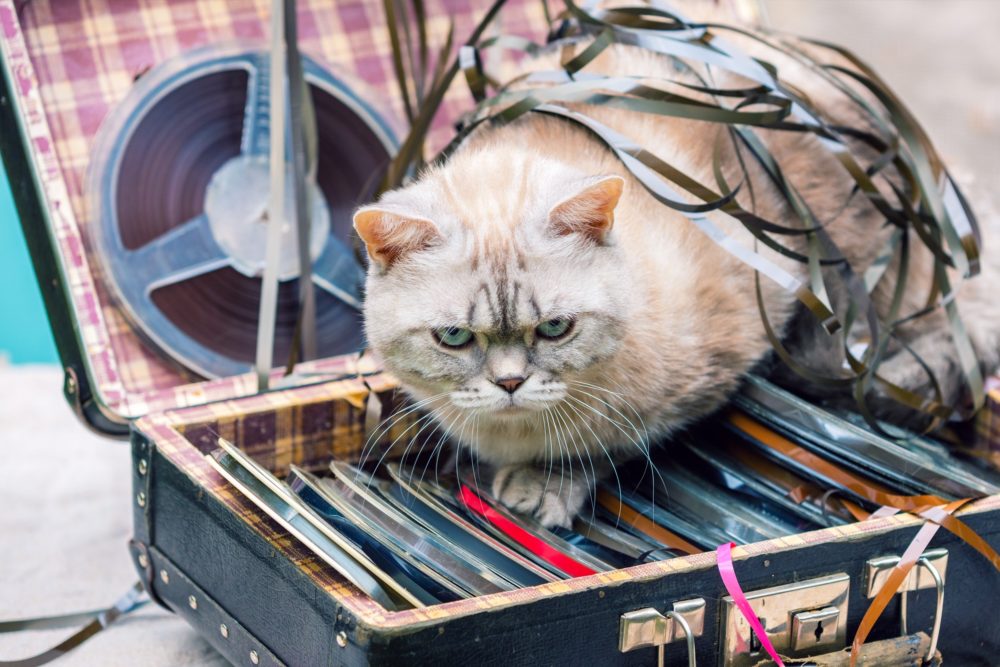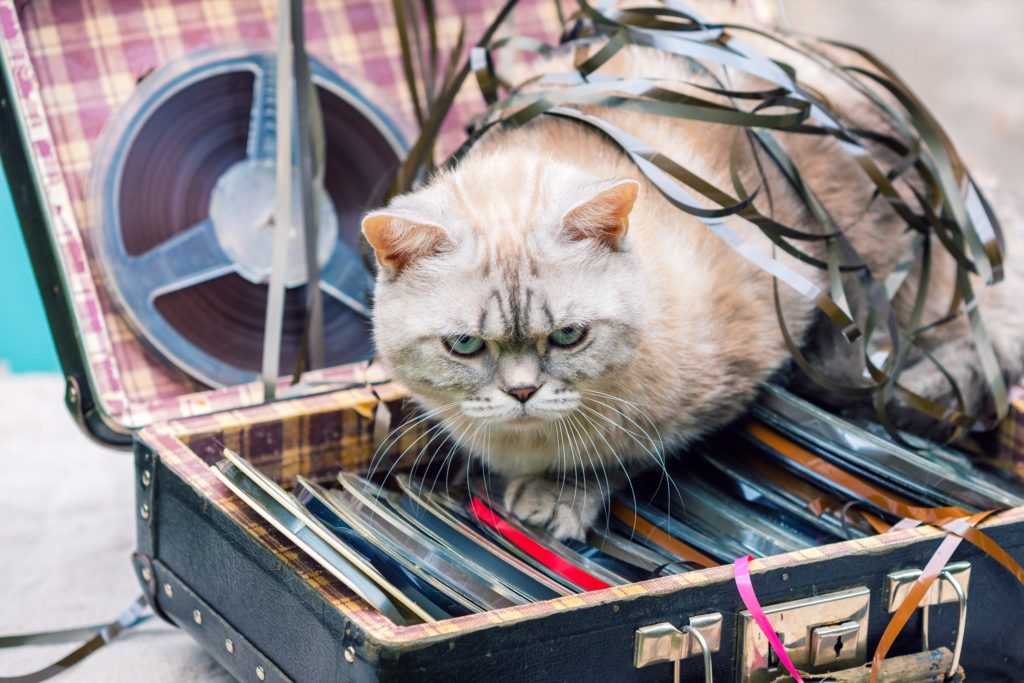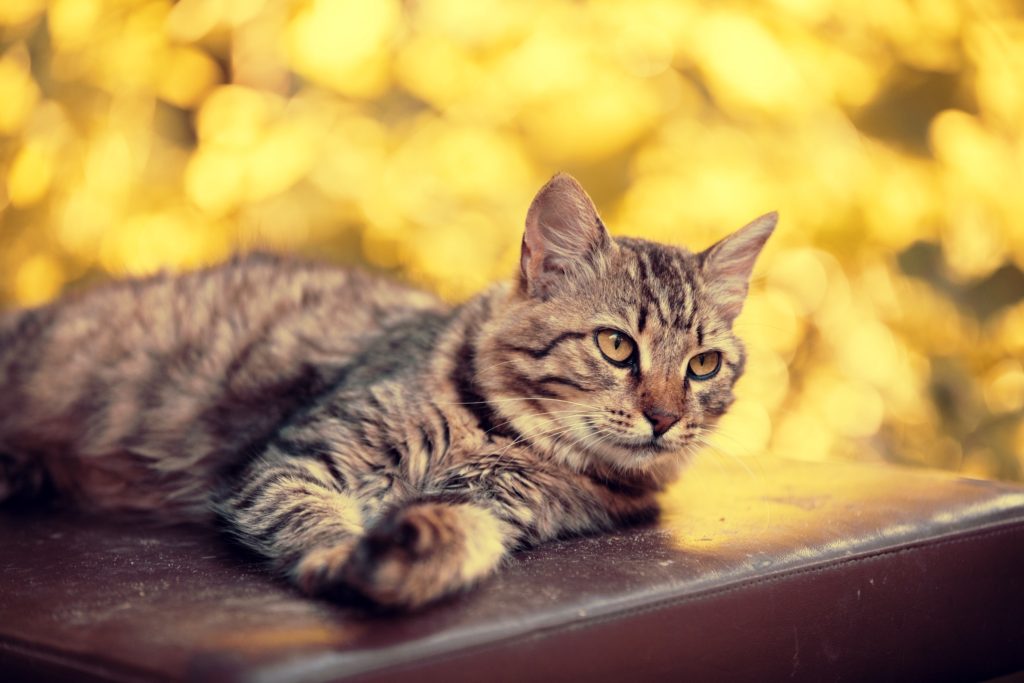
Should I leave music on for my cat?
We all worry about leaving our cats if we leave the house for work, a family day out, or during the busy coming and goings of our lives today. Many of us will do our upmost best to ensure that all of our cat’s needs, and more, are met. Once the basic needs of food, water and litter are organized, we still need to ensure that stimulation, comfort and their mental wellbeing are also cared for. This has led to the question that now many cat owners are asking – Should I leave music on for my cat?
Should I leave music on for my cat?
The short answer to this question is No, you do not need to leave music on for you cat. It is easy for cat owners to worry that their cats will be lonely by themselves but it must be remembered that cats are quite independent. They are naturally and instinctively programmed to be self -supporting and self-reliant for short periods of time. But if you would like to play music to them, then there are certain types of music which are more suitable, and more enjoyable, to your cat.

Cat music research
At the University of Wisconsin-Madison, Charles Snowdown, PhD, conducted research that looked at the response of cats to two different types of music. One type of music was classical music, as we humans listen to, and the second type of music was ‘cat music’. Cats communicate at a higher frequency range than humans. This was a key factor when David Teie, from the University of Maryland was composing music that aimed at being pleasurable to cats. Other factors applied when composing were the rhythms and beat which best matched purring and other comforting noises made by cats when calm and happy. The study was conducted on 47 cats and it was clear that the cats reacted more positively and more quickly to the cat music rather than the classical music. The higher pitch and purring tones may not be relaxing to the human ear but it seems many of our feline friends do enjoy it!
The ‘Music for Cats’ album is now available for any cat owner to purchase. There are five tracks on the album, each approximately ten minutes long, and created with one purpose – for your cat’s enjoyment! Increasing numbers of cat owners are now turning to these specifically composed tunes to play to their cats and are overwhelmingly happy with the results.
Further reading about this specific research can be found in the link at the end of the article.
Understanding a cat’s hearing
 Cats have excellent hearing, a key tool for their survival and especially for hunting. Their sharp hearing is used to hear small movements of a prey, be it footsteps, brushing against a twig or a leaf, or breathing in forms of vibrations or noises. Hearing, along with their other sharp senses, have ensured cats could hunt and catch food, and keep themselves safe from predators and dangers.
Cats have excellent hearing, a key tool for their survival and especially for hunting. Their sharp hearing is used to hear small movements of a prey, be it footsteps, brushing against a twig or a leaf, or breathing in forms of vibrations or noises. Hearing, along with their other sharp senses, have ensured cats could hunt and catch food, and keep themselves safe from predators and dangers.
To understand the types of music that a cat will enjoy it is helpful to understand the makeup and working of a cat’s hearing sense. Although cats and humans can hear similar sounds at a lower frequency, about 20 Hz, it is very different at higher levels. Cats can hear much higher-pitched sounds than a human. Our feline friends can hear sounds up to 64 kHz compared to humans who can hear about 20 kHz. This is 1.6 octaves above the range of a human. This, together with differences in shapes and structure of cat and human ears will cause sounds to be heard very differently.
Another factor which influences how a cat can hear various sounds and music is their whiskers! The whiskers of a cat have many functions and are also key in hunting. Their whiskers play an important role in sensing the exact location of the prey at close range. Whiskers are also sensitive to changes in air streams which can be useful to keep well away from predators and any oncoming dangers. Being sensitive receptors to vibrations, whiskers will also influence the perception of sound, and therefore music. (For further reading on whiskers, check out our article ‘Why do cats have whiskers’).
Benefits of music for cats

Many catteries and cat sanctuaries have long played music to their cats in the hope that it would help ease anxiety and relieve fears. There have been animal relaxation CD’s available on the market for a long time but there was very little evidence to support that they were providing any benefits to cats.
Since the research conducted by Snowdown and his team, many organisations who work with abandoned and abused cats have now switched to play specific cat music. An animal sanctuary in London agreed to trial the new cat specific music instead of the classical music they currently played. Their Head of Cattery, Kayleigh Kilcommons, was surprised but overwhelmingly pleased with the result. The cats almost instantly demonstrated happy and curious body language once the music started playing. Running against the speaker, purring, lying down by the speaker were just some of the reactions the cats had to this specially composed music. They have now switched to specific ‘cat music’ to be played in their centre.
The Louisiana State University School of Veterinary Medicine conducted research into the ‘Effects of music on behavior and physiological stress response of domestic cats in a veterinary clinic’. The results were published in the Journal of Feline medicine and Surgery in February 2019. The findings noted that “We conclude that cat-specific music may benefit cats by decreasing the stress levels and increasing the quality of care in veterinary clinical settings.” Further reading about his research can be found in the link at the end of the article.
Indoor cats can benefit greatly from specific enriching music. It is important to ensure indoor cats are adequately stimulated and cat music can most certainly play a part in this.
Can music help ease a cat’s anxiety?
If your cat is suffering from anxiety, or you have any health concerns regarding your cat, it is important to consult your veterinary in the first instance to seek professional advice. If your cat is diagnosed with anxiety you veterinary will be able to determine the best form of treatment. There are also many holistic approaches to help your cat cope with stress and anxiety. We have explored many of these in various articles, including Reiki for cats, Bach Flower Remedies and in particular Bach rescue remedy for cats and homeopathy. But can music help ease anxiety in cats? Dr Susan Wager from The Ohio State University College of Veterinary Medicine specializes in music therapy for animals. She recommends playing calming music to a cat suffering from anxiety or stress for an hour a day. Her research has shown that music can help cats with other medical conditions too where the condition itself then leads to stress or disorders which are aggravated by anxiety.
Cats that have been rescued from abuse or neglect, or rescued feral cats can benefit greatly from music therapy. The special formulation of the cat music composition can help ease uncertainties and fears and may encourage the cat to respond to its new carers or owners.
How to ensure your cat is happy

If music simply isn’t to you or your cats’ taste, there are many other ways to ensure your cat is happy when alone. We have a whole article dedicated to keeping your cat happy, ‘How to keep your cat happy – 10 key factors’ where you can find plenty of hints and tips. A healthy diet, fresh water, health checks, stimulating play, outside access and of course your love and attention are all key factors to a happy healthy cat.
Research links
Further reading on the research noted in this article can be found by clicking on the following links:
University of Wisconsin-Madison, Charles Snowdown, PhD research:
https://www.eurekalert.org/pub_releases/2015-03/uow-mom031015.php
Louisiana State University School of Veterinary Medicine research:
https://journals.sagepub.com/doi/full/10.1177/1098612X19828131
Other articles you may find of interest:
Should I leave the heating on for my cat? Do cat’s fur keep them warm?
16 Top tips to ensure the senior years are comfortable for your old cat
Natural and alternative healing for cats – an introductory guide





